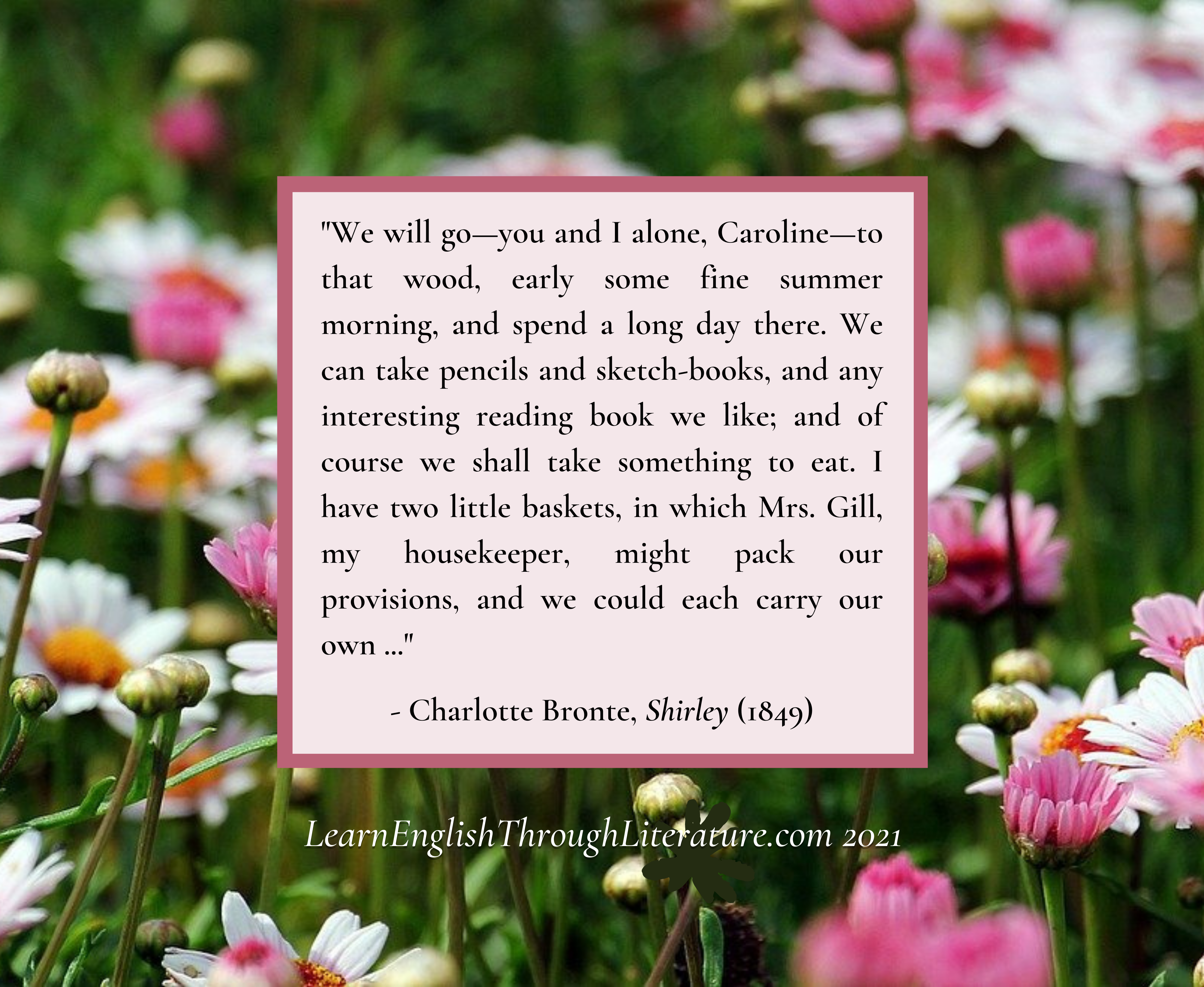We continue our Lesson on the differences (and similarities) between the expressions ‘be going to [verb]’ cf. ‘will [verb]’ to talk about the future in English.
(If you missed it, we looked primarily at ‘be going to …’ in Part 1 of our Lesson)
…
📝 ‘WILL [+ VERB]’ (SIMPLE FUTURE)
In Part 1 of our Lesson, I briefly described ‘will’ as expressing an expectation of what is going to happen in the future.
✍️ But it can also have an element of willingness to do something. We can see this especially when it is used to answer a question. For example,
Ann says, ‘We are having a meeting tomorrow ….’
Emma answers, ‘I will be there on time.’
✍️ This answer using ‘will‘ expresses a personal willingess to attend the meeting, a kind of promise.
On the other hand, if we tried instead to say, ‘I am going to be there on time’, we would lose this understanding of commitment.
Notice how this sense of making a commitment comes through in the conversation between the new friends, Shirley Keeldar and Caroline Helstone. (I am quoting a complete passage, since Bronte’s descriptions of the woods are so picturesque!)
..
📗 “And that,” asked Miss Keeldar, pointing to the forest—”that is Nunnwood?”
“It is.”
“Were you ever there?”
“Many a time.”
“In the heart of it?”
“Yes.”
“What is it like?”
“It is like an encampment of forest sons of Anak. The trees are huge and old. When you stand at their roots, the summits seem in another region. The trunks remain still and firm as pillars, while the boughs sway to every breeze. In the deepest calm their leaves are never quite hushed, and in high wind a flood rushes, a sea thunders above you.”
“Was it not one of Robin Hood’s haunts?”
“Yes, and there are mementos of him still existing. To penetrate into Nunnwood, Miss Keeldar, is to go far back into the dim days of old. Can you see a break in the forest, about the centre?”
“Yes, distinctly.”
“That break is a dell—a deep, hollow cup, lined with turf as green and short as the sod of this common. The very oldest of the trees, gnarled mighty oaks, crowd about the brink of this dell. In the bottom lie the ruins of a nunnery.”
“We will go—you and I alone, Caroline—to that wood, early some fine summer morning, and spend a long day there. We can take pencils and sketch-books, and any interesting reading book we like; and of course we shall take something to eat. I have two little baskets, in which Mrs. Gill, my housekeeper, might pack our provisions, and we could each carry our own. It would not tire you too much to walk so far?”
“Oh no; especially if we rested the whole day in the wood. And I know all the pleasantest spots. I know where we could get nuts in nutting time; I know where wild strawberries abound; I know certain lonely, quite untrodden glades, carpeted with strange mosses, some yellow as if gilded, some a sober gray, some gem-green. I know groups of trees that ravish the eye with their perfect, picture-like effects—rude oak, delicate birch, glossy beech, clustered in contrast; and ash trees stately as Saul, standing isolated; and superannuated wood-giants clad in bright shrouds of ivy. Miss Keeldar, I could guide you.”
“You would be dull with me alone?”
“I should not. I think we should suit; and what third person is there whose presence would not spoil our pleasure?”
“Indeed, I know of none about our own ages—no lady at least; and as to gentlemen——”
“An excursion becomes quite a different thing when there are gentlemen of the party,” interrupted Caroline.
“I agree with you—quite a different thing to what we were proposing.”
“We were going simply to see the old trees, the old ruins; to pass a day in old times, surrounded by olden silence, and above all by quietude.”
– Charlotte Bronte, Shirley (emphasis mine)
…
👉 Observe how the tense form ‘will’ only appears here once in the whole passage, yet most of what the two girls are talking about here is going to happen in the future.
So why don’t they use the future tense more often?
✍️ Because both ‘will [verb]’ and ‘be going to [verb]’ are strong expressions of futurity, and don’t need to be repeated continuously to establish that fact.
…
📝 SIMILARITIES BETWEEN THE 2 FORMS
We can use either ‘will [verb]’ or ‘be going to [verb]’ interchangeably in sentences that express a general expectation or prediction about the future.
These are often impersonal statements, such as the following example:
📗 ‘ “It will end in infamy, sooner or later. I have foreseen it all along.” ‘
– Charlotte Bronte, Shirley (emphasis mine)
This could be written synonymously as follows (in my own words this time, not Bronte’s):
✒️ It is going to end in infamy …
…
Has this Lesson’s overview of essential future constructions been helpful?
As always, if you have any questions whatsoever, I am more than happy to be contacted through my query form.




